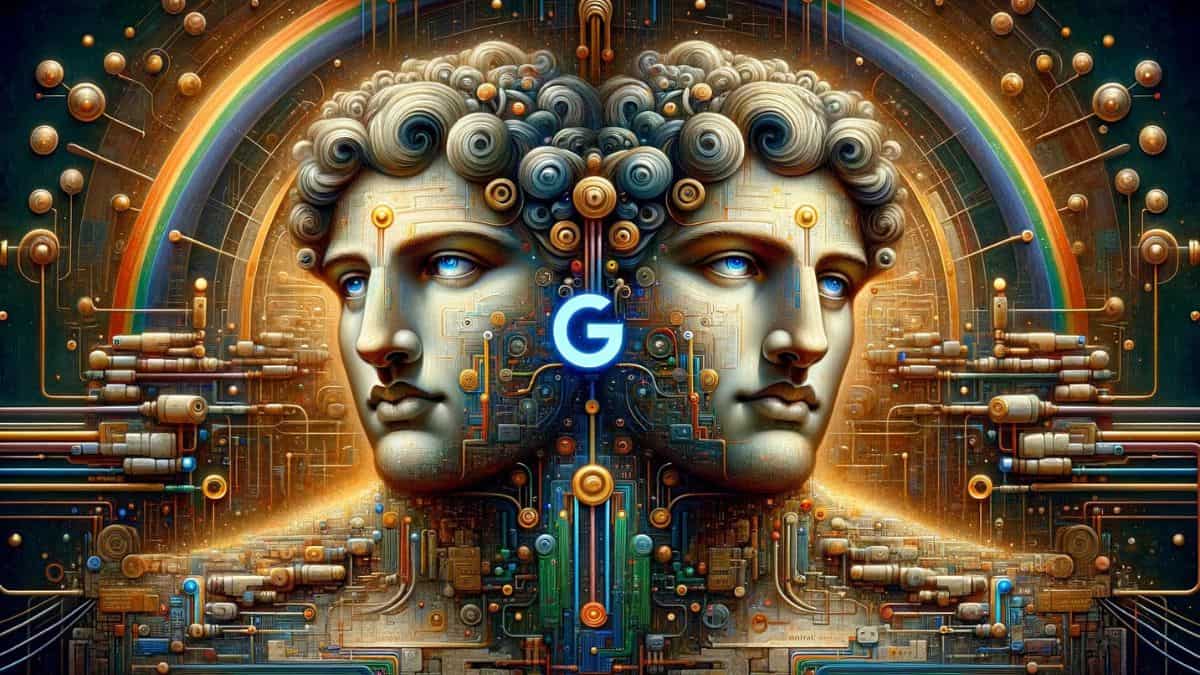Gemini is a new model of artificial intelligence (AI) developed by Google.
It is a multimodal model. This means it can process data from different modalities, including text, images, audio, and video.
Gemini is trained on a massive dataset of text, code, images, and audio. This enables it to understand and respond to a wide range of inputs.
Gemini 1.0 comes in the following sizes:
- Gemini Ultra: the largest model with greater capacity for highly complex tasks.
- Gemini Pro: suitable for scaling across a wide range of tasks. It will be available for purchase.
- Gemini Nano: a more efficient model for on-device tasks.
We asked Gemini why Google chose this name for its new project, and this is what they explained to us.
Why is Google’s new artificial intelligence called Gemini?
Google’s new artificial intelligence is called Gemini for several reasons.
Firstly, the name Gemini refers to the twins Castor and Pollux, two figures from Greek mythology known for their intelligence, wit, and creativity. Gemini is also a name that evokes duality, which is fitting for an AI that can generate text, translate languages, write different types of creative content, and answer questions informatively.
Secondly, the name Gemini is a play on the word “generative.” Gemini is a generative language model, meaning it can create new text from input. The name Gemini reflects this ability to generate text, as “gemini” is the word used in English to refer to twins.
Lastly, the name Gemini is simply a pleasant and catchy name. It is easy to remember and pronounce, and it has a nice sound.
Why did Google choose Castor and Pollux as inspiration for the name of its new AI?
Castor and Pollux were protectors of sailors and travelers. This reflects Google’s desire for Gemini to be a useful and accessible tool for all users.
Specifically, Google mentioned the following reasons for choosing the name:
- Mythological inspiration: Castor and Pollux were twins from Greek mythology known for their intelligence, wit, and creativity. These are qualities that Google seeks in its AI.
- Linguistic inspiration: The word “gemini” in English refers to twins. This is a play on words with the word “generative,” as Gemini is a generative language model.
- Practical inspiration: The name “Gemini” is easy to remember and pronounce, and it has a good sound.
The myth of Castor and Pollux
Castor and Pollux, known as the Dioscuri, are figures in Greek and Roman mythology. They were sons of Leda, but they had different fathers: Castor was the mortal son of Tyndareus, king of Sparta, while Pollux was the immortal son of Zeus, who seduced Leda disguised as a swan. This dual paternity made them half-brothers but also twins.
Castor was known for his exceptional skill in taming and riding horses, while Pollux was famous for his prowess in hand-to-hand combat. Despite the differences in their skills and nature (mortal and immortal), they were inseparable and engaged in many adventures together.
One of the most well-known stories about them involves their rivalry with another pair of twins, Idas and Lynceus, the sons of Aphareus, Tyndareus’s half-brother. This rivalry intensified when Castor and Pollux abducted Phoebe and Hilaira, the daughters of their uncle Leucippus and betrothed to Idas and Lynceus. The confrontation between the two pairs of twins was constant, leading to various conflicts and battles.
In one of these battles, Castor was mortally wounded. Pollux, distressed by the loss of his brother, asked Zeus to share his immortality with Castor. Zeus agreed and allowed them to spend half of their time on Olympus as gods and the other half in Hades as deceased mortals.
The Dioscuri were revered in antiquity, especially among sailors who saw them in the Gemini constellation (representing Castor and Pollux) as protectors during their voyages. They also had a temple dedicated to them in the Roman Forum, reflecting their importance in Roman culture and religion.
ALSO. Sora OpenAI. Another 5 Things You Can Do with This Artificial Intelligence











